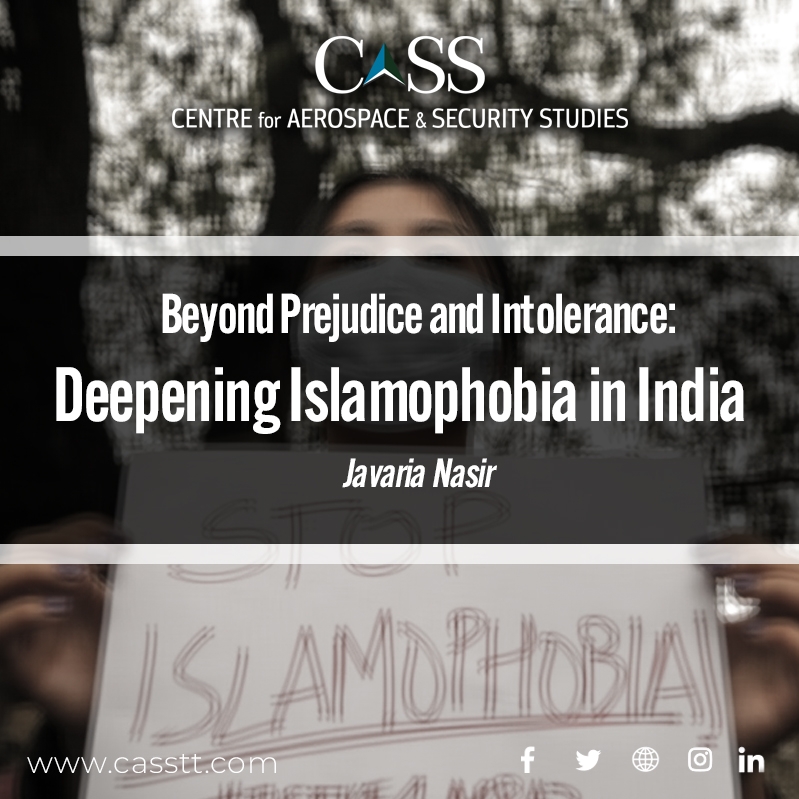Around two hundred million Muslims call India their home; but unfortunately, Modi’s India considers them bearded traitors and state enemies. Islamophobia is not a new phenomenon; however, its growing roots under Modi’s rule lie in the Hindutva ideology which promotes the notion of India for ‘Hindus only’ and deems other religious minorities as outsiders because of their alleged extraterritorial loyalties to other lands, mainly the Arab world. The ideology fuels a social divide depicting the hegemony of Hinduism in India where Muslims are regarded as instigators of terror and suspicion, ultimately widening the rift between the two communities.
During his recent state visit to the United States (US), Narendra Modi was bombarded with questions about the state-sponsored hatred against Muslims and abuse of their rights. However, he unashamedly denied all allegations of any wrong-doing despite damning evidence to the contrary. During the press briefing, he was asked about implementing necessary measures to improve the rights of the Muslim community and minorities. Ironically, he suggested that there was no need to address the human rights situation in his country as India was a democratic state and they had ‘proved democracy can deliver. When I say deliver, regardless of caste, creed, religion, gender – there is absolutely no space for any discrimination (in my government).’
However, in ‘democratic India’, the Muslim community continues to face systemic discrimination and fall prey to acts of violence committed by state-backed gangs of Hindu extremists. Anti-Muslim hostility has surged, and consequently, Muslim men are routinely beaten up by right-wing Hindu extremists, Muslim women are raped and children molested.
The US State Department’s annual Report on International Religious Freedom 2022 has called out several countries, including India, for continuously targeting members from certain faith communities. It highlights numerous concerns regarding religious freedom in India such as regular attacks on Muslims, prohibition on religious conversion, and cow vigilantism.
On the occasion of Eid-ul-Adha, a Muslim man named Afan Abdul Ansari was lynched by cow vigilantes in Maharashtra on the pretext of carrying meat. According to press reports, Afan was brutally assaulted with rods, pipes, and shoes for nearly three hours. The attackers fled after dumping his body on the highway. Another man named Lukman Ansari was also attacked on suspicion of illegally transporting cattle.
According to a new study on rising Islamophobia in the digital age by the Islamic Council of Victoria (ICV) 2022 nearly four million Islamophobic tweets were posted on Twitter between 2017 and 2021. Of these, 55.12% of anti-Muslim hate tweets originated in India. The report observed that India’s ruling Bharatiya Janata Party (BJP) was responsible for disseminating and amplifying prejudice and intolerance towards Muslims.
Besides, some staged videos reinforcing negative stereotypes about Muslims in India are frequently posted on Facebook and YouTube by Indian bloggers, many of whom are accused of peddling false information, inciting hatred, and fanning sectarian tensions in society. These videos depict Muslims as low-life swindlers who cheat and trick innocent people while Hindus are shown as the utmost responsible citizens of the country. Such videos have millions of views and are often included in campaign videos in order to economically marginalise and boycott Muslims. According to the renowned Indian Journalist Rana Ayub, anti-Muslim hate rallies are a new norm in India where Hindu extremists taunt Muslims to choose between Pakistan or Qabristan (graveyard) thus, inciting violence and enflaming hatred while leaving no room for them to lead a life of honor and dignity in India.
A few sane voices in India are calling out their government for its retrogressive and violent policies against Muslims. Sadly, these voices are often muffled by the State apparatus through any and all means possible. Thus, it rests upon the international community to take practical steps for upholding basic human rights in India. Till now, governments around the globe have not gone beyond rhetoric measures to address this issue; so-called national interests have unfortunately triumphed over universal human values. And if this trend continues, India would spiral into an abyss of communal hatred, social violence and fanaticism from which there may be no easy escape.
Javaria Nisar is a Research Assistant at the Centre for Aerospace & Security Studies (CASS), Islamabad, Pakistan. She can be reached at [email protected].





